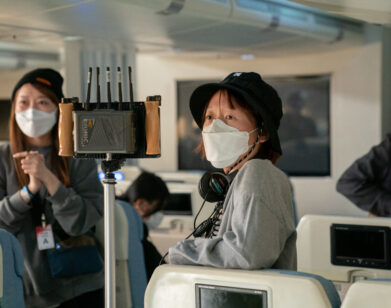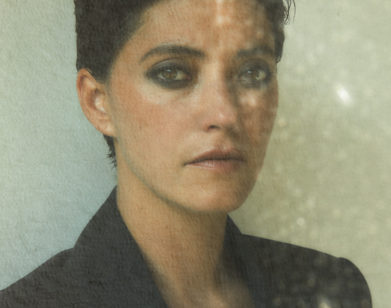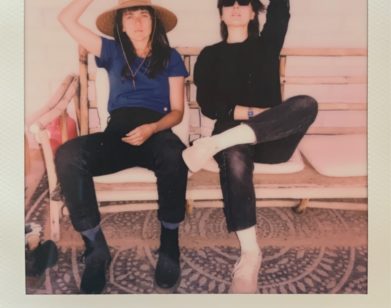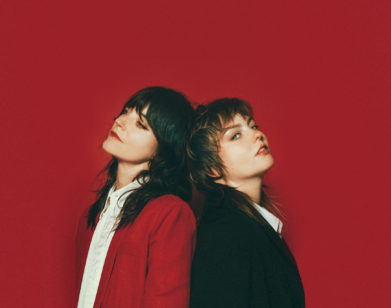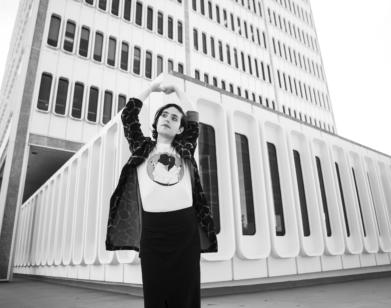music!
Warpaint’s Stella Mozgawa and Kurt Vile on the Art of the Studio Hang
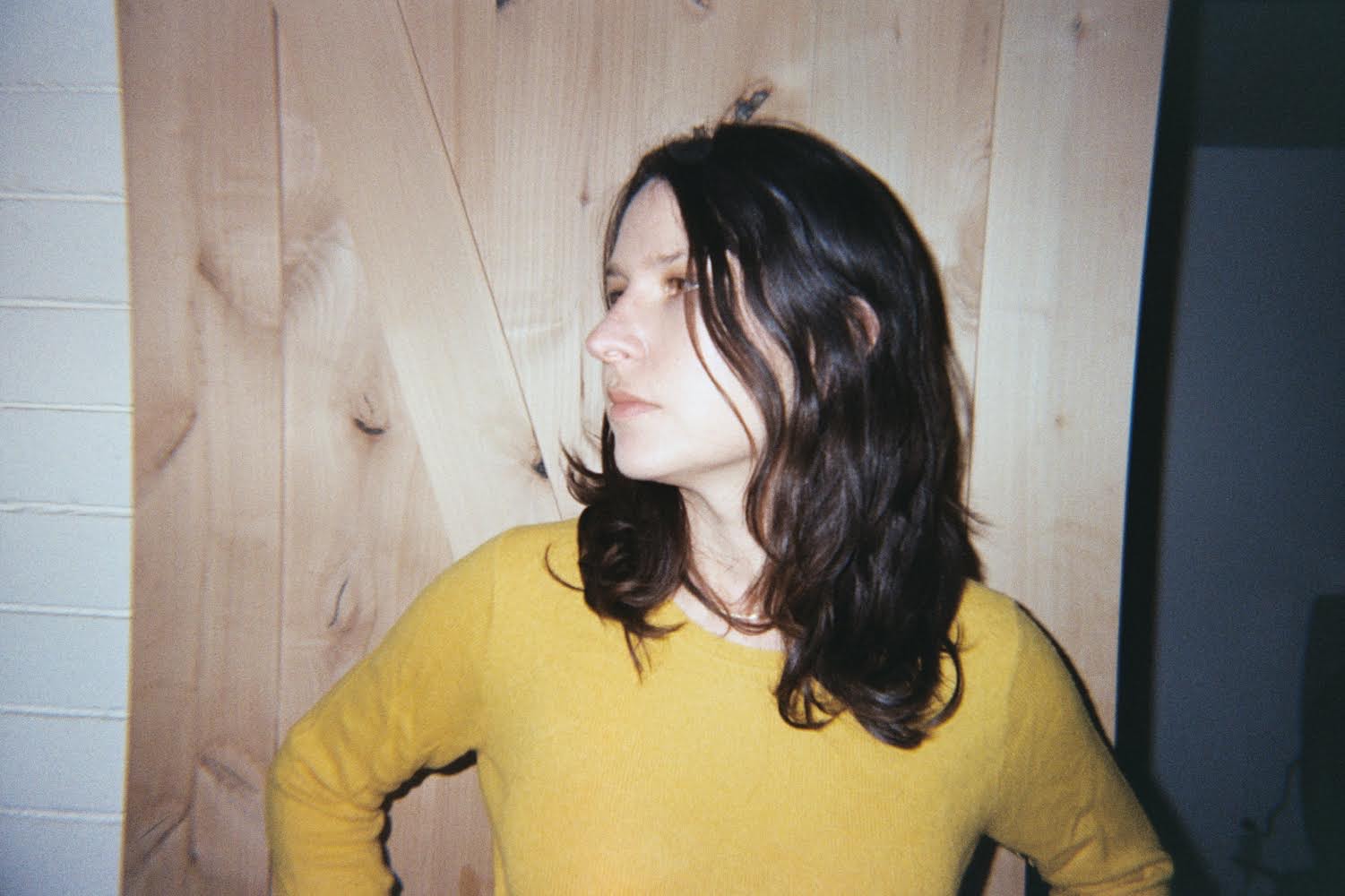
Stella Mozgawa. All photos by Courtney Barnett.
After a 6 year hiatus, Warpaint has returned with Radiate Like This, their eagerly-anticipated fourth studio album. Released on the eve of the Los Angeles-based band’s 20th anniversary, the record—which expands on the band’s signature blend of blissed-out dream pop and moody psych rock—was conceived, recorded, and produced entirely in isolation, during the longest period of time that Warpaint’s members have ever been apart. But the pandemic also offered the band’s four members—Jenny Lindberg (bass), Emily Kokal (vocals and guitar), Theresa Wayman (vocals and guitar), and Stella Mozgawa (drums)—an opportunity to embark on solo projects. Mozgawa tried her hand at producing, helping to shape recently-released albums by Cate le Bon, Sharon Van Etten, and Courtney Barnett. But, as Kurt Vile reminds us, Mozgawa has always been a producer—the drummer’s intuition was one of the magic ingredients that brought Vile’s 2013 album, Wakin On A Pretty Daze, to life. Here, the old friends and mutual fans discuss making covers of your own songs, releasing post-lockdown albums, and the fine line between “cool” and “dick.”
———
KURT VILE: How’s rehearsal going with the girls?
STELLA MOZGAWA: It’s been really challenging, actually because I hadn’t seen Jen and Emily in over two years.
VILE: I know. I was really feeling for you guys, because to be blunt, that’s really what music is. It’s like, you can say you’re in a band, but if you’re not working on music in the same place, then are you really in a band? I was struggling with that too, but rehearsing with The Violators before this tour eased it. We had to get help and we had to have some gigs filled in. At first everybody was like you should get some girl power in there, or you should get some diversity. I mean, that’s always good. At the end of day, I was like I should get somebody that I actually know, and I’m hanging out with.
MOZGAWA: Yeah, and like us, you’ve pretty much played with the same three people forever: Kyle, Jesse, and Rob. Is there anyone else that’s new in the band?
VILE: Well, I brought on a friend of mine as a guitar tech, but really I was just seeing if I minded having him around. At the end of the day, I just want people in the band who I like hanging out with. We were supposed to start touring two days ago, but I’m still home because of COVID related things. We had to delay a couple shows.
MOZGAWA: Where are you starting?
VILE: We’re going to start in Asheville, North Carolina.
MOZGAWA: Are you going to Europe this year?
VILE: Yes. At first I was like, “I can’t believe I have to leave my house.” Delphine, my youngest, was crying really hard when I told her about the tour. I was like, “How am I going to do this?” But once I got moving, I was like, “Okay, this feels pretty normal.”
MOZGAWA: What’s your technique for staying in touch with your kids and Suzanne when you’re on tour? Are there rules that you follow?
VILE: It’s easy because of FaceTime. It’s cute, too, because Delphine still answers the phone the way she did when she was a toddler. I don’t ever draw attention to it, because then she’ll stop doing it. She’s like, “Hi?” with a question mark, instead of “Hello.”
MOZGAWA: I wish I could relate. I’ve been watching Emily say goodbye to Francis every morning when we go to rehearsals. We’ve been rehearsing really consistently for a month now. She’s not used to her mom leaving every day, because she’s been with her mom nonstop since the pandemic, and it scares her. The other day, Emily was on the way out the door and said, “Is it okay that I’m leaving?” Francis gave her a thumb up, but was shaking her head no. [Laughs]
VILE: That’s also kids at that age. They’re pretty attached to mom.
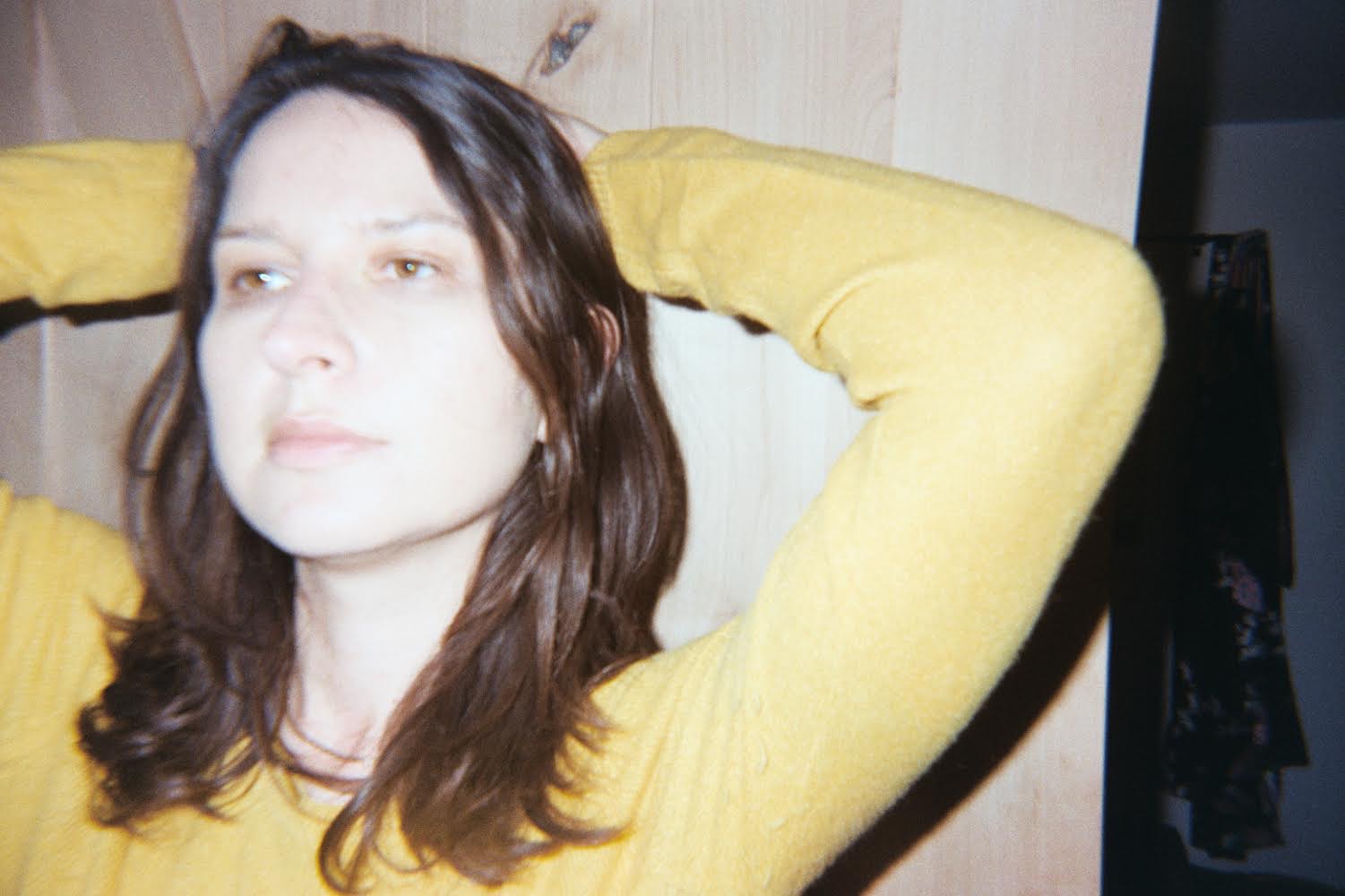
MOZGAWA: Have you ever taken your kids on the road?
VILE: They usually come at the end. I really did get used to being at home. All of our rehearsals have been in my home studio, and it was amazing. I just kind of show up, and everyone’s there. The first time I fnished a session in there, I was like, “Alright, see you guys later,” and just went up the basement steps and I was gone. I almost cried, because it felt so different than it does when you leave the studio and you’re all alone. To my family I was like, think about touring this way— we get to meet in cool places.
MOZGAWA: You’ve handled it so well. I want to hop back to a year ago, because I never really got to ask you what it was like producing that Dinosaur Jr. Record [Sweep It Into Space].
VILE: At first it stressed me out. I didn’t know why they thought I was a good choice. I’ve toured a bunch with them, and they’re high school heroes of mine. I was nervous. Jay told my manager, “He doesn’t know how to produce, and that’s why I want him to do it.”
MOZGAWA: He can feed off your nervous energy.
VILE: It ended up being me sitting around and watching him play a bunch of lead guitars. I added some falsetto background vocals and some guitars, but mainly it was just about keeping the vibe right between all those people. It was fun.
MOZGAWA: It was fun being an emotional support animal.
VILE: When I was in my teens, I worshiped people like Dinosaur Jr., Pavement, and Sonic Youth. You meet them in your early 20s, and you’re awestruck. Then you work with them, and they’re actually quite down to earth. I feed off those people. You can actually talk to them, but they’re still your heroes. I saw Dinosaur Jr. at the Electric Factory when I was young, and Jay was not giving a shit. He kept walking off the stage while playing lead guitar.
MOZGAWA: You definitely metabolized some of that.
VILE: [Laughs] I guess so. At the time, I thought he was kind of being a dick, but I did like it. Now I think it’s cool as hell, and I recently asked him about it. I said, “Were you stoned?” He was like, “Possibly drunk.” You’re a big producer now, too.
MOZGAWA: I’m an enormous producer. It’s all I seem to do these days. It’s such a nebulous title. Like you said, you get nervous because as a musician, you think that producers know all these super technical things. But most artists are just looking for someone whose taste you can trust. I think that’s why a lot of artists end up co-producing their records, because they feel that they have that objectivity. Every producer is different. It’s a weird title.
VILE: It is a weird title. At the end of the day, it’s just the hang. Are you cool to hang with? That’s absolutely all it is. We first met at Primavera in 2012, right?
MOZGAWA: Yes. It was you, Bright Eyes, and us. We all did some shows together after that.
VILE: That was really fun. After that, I had to finish this album, and the drums were boring. Someone said, “You need to get Stella. She’s the best drummer in the world.”
MOZGAWA: I was so stoked.
VILE: You really did save the record, because I didn’t know what was gonna happen. I had crazy migraines at the time, and you came to the studio in L.A. I was like, “Alright, I can only do one song today.” It was “girl called Alex,” it’s such a good song. You played, and it was this organic, real magic. Then we ended up in the desert for the next record and I had no producer.
MOZGAWA: It was pretty freeform.
VILE: It took a few days to get it together, but then we got that song “Wheelhouse,” which is my favorite desert jam. Working on that song made me realize that you were really the producer of that record, because you hit that solid beat and things really took off. That’s the reason Courtney [Barnett] hired you.
MOZGAWA: That one song. She was like, “Can we make a whole album that just sounds like that song?” The best recording experience of my life was making that record with you. I think back on it fondly. It never really felt like we were making a record, there was so much freedom. We didn’t have a huge time crunch. There wasn’t an enormous pressure to get a set amount of songs done. I think that’s the way it is with you, in general. It’s about seeing what happens as opposed to mapping out exactly what we’re going to accomplish each day.
VILE: I love that too. There’s always a deadline, but until then, you have to just live it and record along the way. I love the way you play drums. Everybody does.
MOZGAWA: You have an ability to mine these really pure ideas. A lot of people just pile that stuff on a hard drive, but with you, it flowers into something really magical.
VILE: Well, until we worked together on “girl called Alex,” I’d never played with anybody so musical. It’s why I kept wanting to work with you.
MOZGAWA: The feeling is absolutely mutual. I love your new record.The pandemic gave me this epiphany— I’m an “in the room” musician. The impact of actually being together and bouncing off of what someone else is playing, that’s music to me. Remote collaboration feels like a counterfeit experience. A lot of artists are able to enter their own little world and have an isolated music experience. As much as I try to be that kind of musician, it just doesn’t sit with me. Did you do a lot of remote work on this record?
VILE: No. Luckily, I had my Philly crew. I tried to do some other projects that, like a recording session with Kesha. She asked me to help her write some songs—it was awesome, but it was hard.
MOZGAWA: You become a technician more than a musician. You’re waiting a few days for an email. When you’re sitting on the couch playing, you get immediate feedback.
VILE: So now War Paint has reunited, and you’ve been jamming for a month.
MOZGAWA: We’re leaving for tour in two days. We’re going to Europe and the U.K.
VILE: So it’s all coming together?
MOZGAWA: Yes, but the hardest thing is that so much of the record was done remotely, that this is the first time we’re actually playing some of the songs together, and that is super weird. It’s reverse engineering this live experience. We’ve done our best.
VILE: You could just change it for live shows.
MOZGAWA: I like the idea of doing, essentially, a cover of the songs. There’s a lot of synth layers and vocal layers, so I have to build an actual track for us to play along to.
MOZGAWA: Now that you have your home studio, will you make the next record entirely at home?
VILE: I live just outside Philly. It’s so nice here, there are trees everywhere. We filmed all of my latest videos, and shot the front cover, in my hood in Mount Airy. It saved my life to be in Mount Airy. I moved here during hectic time when I wasn’t home much, but every time I came back from a tour I could see this album gathering around me. I wanted to stay and bring it to life, but I kept being pulled away. Finally, I made it, and it’s beautiful.
MOZGAWA: I’m so proud of you.
VILE: I’m proud of you. I love you.
MOZGAWA: I love you too.


